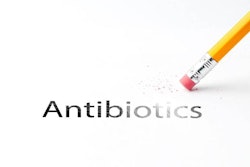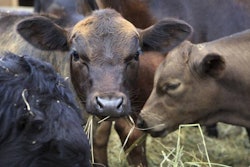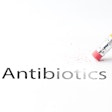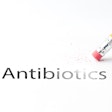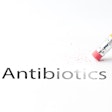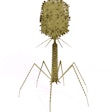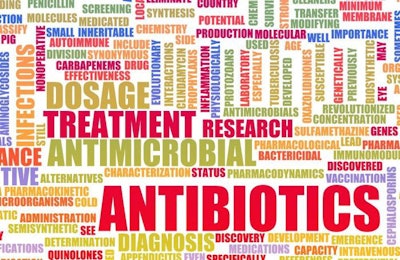
Two recent events – the U.N. High-Level Meeting on Antimicrobial Resistance and Elanco’s ONE Health Antibiotic Stewardship Summit – addressed the issue of antimicrobial resistance.
The U.N. meeting, held in New York on September 21, led to the approval of a declaration to address the root causes of antimicrobial resistance in the human health, animal health and agriculture sectors. The heads of state reaffirmed their countries’ commitment to develop national action plans on antimicrobial resistance, strengthen regulation of antimicrobials, improve knowledge and awareness, promote best practices, and foster innovative approaches using alternatives to antimicrobials and new technologies for diagnosis and vaccines.
The national action plans are based on the Global Action Plan on Antimicrobial Resistance developed in 2015 by the World Health Organization (WHO) in coordination with the Food and Agriculture Organization of the United Nations (FAO) and the World Organisation for Animal Health (OIE).
“Antimicrobial resistance threatens the achievement of the Sustainable Development Goals and requires a global response,” said President of the U.N. General Assembly Peter Thomson. “Member States have agreed upon a strong political declaration that provides a good basis for the international community to move forward. No one country, sector or organization can address this issue alone.”
The U.N. says action plans are needed to understand the full scale of the problem and stop the misuse of antimicrobial medicines in human health, animal health and agriculture. World leaders recognized the need for stronger systems to monitor drug-resistant infections and antimicrobials used in humans, animals and crops, as well as increased international cooperation and funding.
The U.N. says antimicrobial resistance around the world is the result of overuse and misuse of antibiotics and other antimicrobials in humans, animals (including farmed fish), and crops, and the spread of residues of these medicines in soil, crops and water. The U.N. considers resistance to antibiotics the “greatest and most urgent global risk requiring international and national attention.”
Antimicrobial resistance “is a problem not just in our hospitals, but on our farms and in our food, too,” said Dr. José Graziano da Silva, director-general of FAO. “Agriculture must shoulder its share of responsibility, both by using antimicrobials more responsibly and by cutting down on the need to use them, through good farm hygiene.”
Leaders at the U.N. meeting called on WHO, FAO and OIE, in collaboration with development banks such the World Bank and other relevant stakeholders, to coordinate their planning and actions and to report back to the U.N. General Assembly in September 2018.
AFIA pleased with resolution, but has a concern
The American Feed Industry Association (AFIA) says it finds the U.N.’s proposed resolution to be “well balanced in its approach and priorities.”
AFIA says the resolution “places equal focus on both human health services and animal husbandry use of antimicrobials, support of developing countries, and increased research for new antimicrobials, vaccines and alternative products.”
However, AFIA says it disagrees with the WHO director general’s comments at the meeting that the use of antimicrobials in animal husbandry is a “significant part of the problem.”
“WHO has limited animal health participation in the discussion panels held to address antimicrobial resistance and the multiple areas of coordinated action required. This concern is amplified in the fact that WHO is the co-chair of an ad hoc interagency coordination group, designated to ensure the appropriate expertise is considered in developing more specific recommendations,” AFIA said.
ONE Health Summit
Elanco’s ONE Health Summit brought together more than 250 global food and health leaders from the public and private sectors in Washington, D.C., to declare priorities to help combat antimicrobial resistance as part of efforts to produce a sustainable food supply.
The Summit explored three core areas to help animal agriculture deliver on their commitments to help combat antimicrobial resistance:
- Increase veterinary oversight
- Improve antimicrobial resistance monitoring and reporting
- Accelerate innovation
Workshops were held to develop outcomes to these three core areas. To increase veterinary oversight, a working group was formed to establish a pilot project to develop and test a model for increasing veterinary capacity and training. The World Veterinary Association (WVA) will chair the working group. The American Association of Veterinary Medical Colleges (AAVMC) will convene stakeholders to explore funding opportunities and build capacity. The Gates Foundation will work with stakeholders to build connections and consider funding support in countries aligned with the Foundation’s strategy.
To improve antimicrobial resistance monitoring and reporting, Summit participants will continue working together to develop a process to collect and harmonize data on global antibiotic use and resistance across all livestock sectors.
To accelerate innovation, a cross-functional working group will be formed to advance innovation and build public confidence in innovative solutions.
“A very substantial part of antibiotics is used on farms routinely or to overcome suboptimal conditions. With a holistically integrated approach based on farm, feed and health management, antibiotic use can be reduced significantly – with equal or even better productivity,” said Nutreco CEO Knut Nesse at the ONE Health Summit. “By learning from best practices and focusing on alternative strategies, we can help farmers in feeding a growing world population using less resources as well as less antibiotics.”


